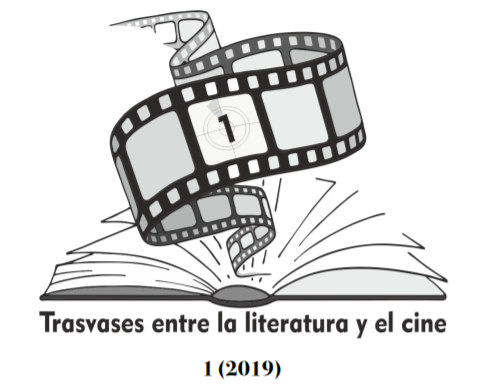Chiaroscuros of the heart: Kokoro (Natsume S?seki-Kon Ichikawa)
DOI:
https://doi.org/10.24310/Trasvasestlc.v0i1.6745Keywords:
Kokoro, Natsume Soseki, Kon Ichiwaka, Meiji, homosocial continuum, Y?chi Komori, Jun Et?Abstract
Kokoro is one of the masterpieces of Japanese literature. Written in first person and in two different narrative times, Natsume S?seki's most acclaimed novel initiated a dialogue with the reality of his time; melancholy, ambiguity and irony were blended in a text of great subtlety. When filmmaker Kon Ichikawa decided to shoot Kokoro, the challenge was multiple: how to adapt a work with two voices and two narrative times? How to capture the essence of a vanishing Japan with the arrival of the Taish? era? Giving a twist to the literary source, Ichikawa focused his version on the representation of taboo, and put his film in dialogue with theoretical discourses circulating around Kokoro.Downloads
Metrics
Publication Facts
Reviewer profiles N/A
Author statements
Indexed in
-
—
- Academic society
- N/A
- Publisher
- Universidad de Málaga
References
Et?, Jun (1965). Natsume S?seki: A Japanese Meiji Intellectual. The American Scholar, vol 34, nº 4, otoño, pp. 603-619.
Kawana, Sari (2018). The Uses of Literature in Modern Japan. Londres: Bloomsbury Publishing.
McKinney, Meredith (2010). Introduction. En S?seki, Natsume, Kokoro. NuevaYork: Penguin Books.
McLellond, Mark J. (2000). Male Homosexuality in Modern Japan: Cultural Myths and Social Realitles. Richmond: Curzon.
Mostow, Joshua (ed). (2003). The Columbia Companion to Modern East Asian Literature. Nueva York: Columbia University Press.
Naito, Mariko (2010). Rethinking the Dichotomy between the Religious and the Secular: The Emergence of Religion in Modern Japan. UTCP Booklet 17, diciembre 2010, pp. 23-31.Recuperado en https://utcp.c.u-tokyo.ac.jp/publications/pdf/UTCPBooklet17_01_Naito.pdf
Nakano, Tsutomu (2018). Japanese Management in Evolution: New Directions, Breaks, and Emerging Practices. Nueva York: Routledge.
Nathan, John (2018). S?seki: Modern Japan's Greatest Novelist. Nueva York: Columbia University Press.
Rubio, Carlos (2009). Introducción. En S?seki, Natsume, Kokoro. Barcelona: Gredos.
Ryans, Tony (2009). Kokoro Booklet. En Kokoro DVD. London: Eureka / The Masters of Cinema Series 67.
Sharp, Jasper (2011). Historical Dictionary of Japanese Cinema. Plymouth: The Scarecrow Press.
Sharp, Jasper (2018). Where to begin with Kon Ichikawa. Recuperado en https://www.bfi.org.uk/news-opinion/news-bfi/features/where-begin-kon-ichikawa
S?seki, Natsume (2018). Kokoro. Madrid: Impedimenta.
Standish, Paul (2012). Sounding the Echoes – By Way of an Introduction. En Standish, Paul y Saito, Naoko (Eds). Education and the Kyoto School of Philosophy: Pedagogy for Human Transformation. Nueva York: Springer.
Vincent, J. Keith (2010). Sexuality and narrative in S?seki’s Kokoro. En Cornyetz, Nina y Vincent, J. Keith (Eds). Perversion and Modern Japan: Psychoanalysis, Literature, Culture. Nueva York: Routledge.
Downloads
Published
How to Cite
Issue
Section
License
All authors published in this journal accept the following copyright terms:
a. Authors retain their authors´ rights (copyright) and grant First Publication Rights to the journal, which whill be published under a the Creative Commons Attribution-NonCommercial-ShareAlike 4.0 International (CC BY-NC-SA 4.0) license. All about this license is available in the following link: <http://creativecommons.org/licenses/by-nc-sa/4.0>
b. Authors may separately establish additional agreements for the non-exclusive distribution of the version of the work published in the journal (e.g. including it in an institutional repository, or publishing it in a book) with an acknowledgement of its initial publication in this journal.
c. Authors are allowed and encouraged to disseminate their work electronically (e.g. in institutional repositories or on their own website) as this can lead to productive exchanges, as well as earlier and more extensive citation of published work.
The author is responsible for obtaining permission from the copyright holder when using copyrighted materials.
This electronic journal is published by University of Málaga (UmaEditorial), thus it is necessary to cite the origin of any partial or total reproduction.








22.png)










